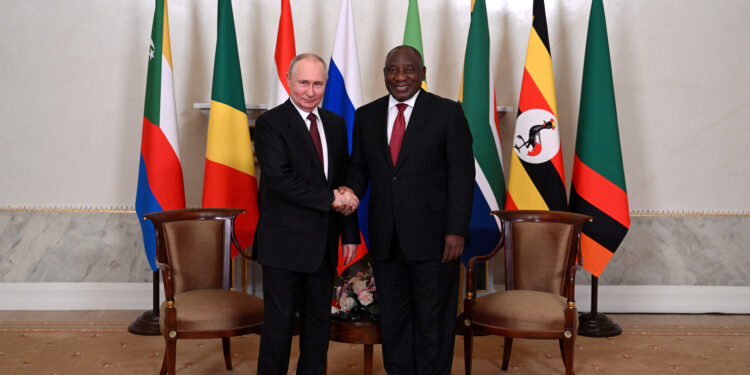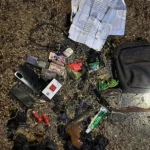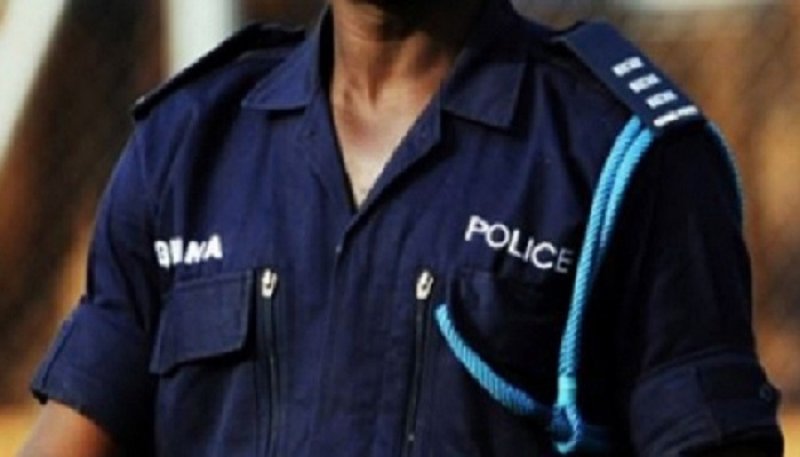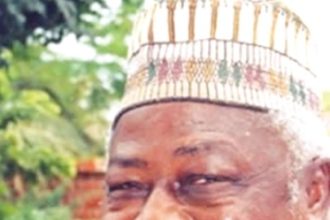Vladimir Putin and Russia have become commonplace in Africa’s political discourse over the past few years as a result of Putin’s consistent and somewhat persistent forays into and overtures to the continent. While Putin and Russia have become heroes and saviours to some African countries, they have incurred the wrath of France, the United States and the West for the very same reason that they have been hailed as ‘Messiahs’ and “benefactors” by those African countries. Insipidly and indirectly, Putin’s Russia has toppled France in France’s own ‘backyard’ by deflating Françafrique. Although the development may seem pretty recent, it is a process that had been in the works more than a century ago.
In 1917, the Russian Revolution led to the overthrow of the Tsarist autocracy and the establishment of the Soviet Union. From 1918 to 1920, the Russian Civil War occurred between the Red Army (Bolsheviks) and the White Army (anti-Bolsheviks). The Bolsheviks, led by Vladimir Lenin, eventually triumphed. In 1922, the Union of Soviet Socialist Republics (USSR) was officially established, uniting Russia, Ukraine, Belarus, and the Transcaucasian Federation (Armenia, Azerbaijan, and Georgia). In 1924, Lenin died, and Joseph Stalin emerged as his successor after a power struggle. From 1928 to 1933, Stalin implemented the first Five-Year Plan to industrialise the economy and collectivise agriculture, leading to significant economic changes but also widespread famine and suffering. From 1936 to 1938, the Great Purge saw the execution and imprisonment of millions of perceived political enemies. And from 1939 to 1945, during World War II, the USSR initially signed a non-aggression pact with Nazi Germany, but after Germany’s invasion in 1941, the USSR joined the Allies and played a crucial role in the defeat of Nazi Germany.
Post-War Era and Cold War (1945-1991):
The USSR emerged in 1945 as one of the world’s two superpowers, leading to the Cold War against the United States and its allies. After the death of Stalin in 1953, Nikita Khrushchev eventually became the leader, initiating a period of de-Stalinisation and relative liberalisation. The Cuban Missile Crisis in 1962 brought the world to the brink of nuclear war. In 1985, Mikhail Gorbachev became the leader and introduced reforms like perestroika (economic restructuring) and glasnost (openness), aiming to revitalise the Soviet system. However, the USSR faced political instability, economic decline, and a series of nationalist movements that conspired to collapse the Union on December 26, 1991.
Brief History of Russia Post-USSR
In 1991, Boris Yeltsin became the first President of the Russian Federation. The country faced severe economic hardship and political instability during the transition from a planned economy to a market economy. In 1993, a constitutional crisis culminated in a violent standoff between Yeltsin and the Russian parliament, which was resolved in Yeltsin’s favour. In 1999, Yeltsin resigned, and Vladimir Putin became acting president.
Putin Era (2000-present):
From 2000 to 2008, Putin served his first two terms as President, focusing on stabilising the economy, centralising power, and reasserting Russia’s influence on the global stage. From 2008 to 2012, Dmitry Medvedev served as President with Putin as Prime Minister, a period marked by a continuation of Putin’s policies. Putin returned to the presidency in 2012 and has remained in power, amending the constitution in 2020 to potentially extend his rule until 2036.
In recent history, Russia has faced significant international criticism for its actions, including the annexation of Crimea in 2014 and involvement in the Syrian Civil War. Domestically, Putin has maintained a strong grip on power despite economic challenges and opposition movements. Throughout its history, Russia has undergone significant political, economic, and social transformations, evolving from an imperial state to a communist superpower, and finally to a modern federation under Putin’s long-standing leadership.
History of Russia-Africa Relations
Russia-Africa relations have evolved significantly over the centuries, characterised by various phases of political, economic, and cultural interaction. In the 19th century, Russian explorers and travellers such as Yegor Kovalevsky and Vasily Junker made significant contributions to the study of Africa’s geography, ethnography, and natural sciences. These explorations laid the groundwork for future interactions and established early trade and diplomatic relations, particularly with Ethiopia, where Russia established an official mission in Addis Ababa in 1898 (Yeltsin Library) (Carnegie Endowment).
The establishment of Soviet power marked a new phase in Russia-Africa relations. The Soviet Union played a crucial role in supporting anti-colonial movements across Africa during the mid-20th century. It provided material and advisory assistance to various liberation movements, opposing European colonial powers. During the Cold War, the USSR established strong ties with countries like Angola, Ethiopia, and Egypt, often providing military and technical support to socialist-aligned governments and movements (Yeltsin Library) (Carnegie Endowment).
After the dissolution of the Soviet Union in 1991, Russia’s engagement with Africa diminished but began to revive in the early 21st century. This period saw Russia seeking to re-establish its influence through economic and military cooperation. Russian companies have been involved in various sectors, including energy and mining, in African countries such as Algeria, Angola, and South Africa. Additionally, Russia has signed numerous military cooperation agreements and increased its diplomatic presence across the continent (Carnegie Endowment).
In recent years, Russia has intensified its efforts to strengthen ties with Africa. The inaugural Russia-Africa Summit in 2019 marked a significant milestone, bringing together representatives from 43 African countries to discuss cooperation in trade, security, and cultural exchange. This event underscored Russia’s intent to become a major player in Africa, countering the influence of Western and Chinese interests on the continent (Wikipedia) (Yeltsin Library).
Despite these efforts, Russia’s influence in Africa is met with mixed perceptions. Surveys indicate varying levels of approval across different African countries, with some viewing Russia’s involvement positively while others remain sceptical. The ongoing geopolitical tensions, such as Russia’s invasion of Ukraine, have also impacted its image and relations with African nations (Carnegie Endowment).
Overall, Russia-Africa relations have a deep and multifaceted history, shaped by exploration, ideological support during decolonisation, and contemporary geopolitical strategies. The future of these relations will likely continue to evolve as both Russia and African nations navigate a complex global landscape.
Russia’s Military Presence in Africa
Russia’s military presence in Africa has evolved significantly over the years, marked by periods of intense activity and strategic withdrawals, largely influenced by geopolitical dynamics and Russia’s changing foreign policy priorities. During the Cold War, the Soviet Union was heavily involved in Africa, primarily supporting anti-colonial movements and socialist governments. This involvement was part of a broader strategy to expand Soviet influence and counter Western (particularly U.S. and NATO) presence on the continent.
The USSR provided substantial military support to liberation movements and newly independent states, particularly in Angola, Mozambique, and Ethiopia. This support included the supply of weapons, military training, and advisors (Yeltsin Library).
The Soviet Union also established a significant military presence in countries such as Ethiopia and Angola. In Ethiopia, the Soviets backed the Derg regime, providing military advisors and equipment during the Ogaden War against Somalia in the late 1970s.
After the collapse of the Soviet Union in 1991, Russia’s presence in Africa waned considerably, as the country dealt with its own internal political and economic turmoil. Throughout the 1990s, Russia largely retreated from Africa, closing many of its bases and significantly reducing its military and economic support to the continent. In the early 2000s, Russia began to re-engage with Africa, seeking to rebuild its influence through economic partnerships and military cooperation. This included the sale of arms and military equipment to African nations (Carnegie Endowment).
In the 21st century, Russia has made a concerted effort to re-establish a military presence in Africa, driven by strategic and economic interests.
Arms Sale
Russia has become a major arms supplier to Africa, second only to the United States. Countries such as Algeria, Egypt, and Angola have been significant purchasers of Russian military equipment, including fighter jets, tanks, and air defence systems (Yeltsin Library) .
Military Agreements
Russia has signed numerous military cooperation agreements with African countries. These agreements often include the provision of military training, joint exercises, and the establishment of military facilities. For instance, in 2019, Russia signed military cooperation agreements with over 20 African countries during the Russia-Africa Summit in Sochi.
Private Military Contractors (PMCs) – Wagner Group
In recent years, Russia has increasingly relied on PMCs like the Wagner Group to extend its influence in Africa. These contractors have been involved in various conflicts and security operations, notably in Libya, Sudan, and the Central African Republic (CAR). Their activities often include combat operations, training local forces, and securing strategic assets such as mines.
Geopolitical and Strategic Interests
Russia’s renewed military presence in Africa is part of a broader strategy to expand its geopolitical influence, secure access to natural resources, and counterbalance Western powers. Russia has sought to establish a naval presence in strategic locations, such as plans for a naval base in Sudan, which would provide a foothold in the Red Sea and enhance its ability to project power in the region. Beyond military sales, Russia’s engagement in Africa also involves securing access to valuable resources, including minerals and energy reserves. Military support often complements economic agreements, providing security for Russian investments. Russia’s military presence in Africa reflects a strategic effort to regain influence lost after the Soviet Union’s collapse. Through arms sales, military agreements, and the use of PMCs, Russia aims to bolster its geopolitical standing, secure economic interests, and present itself as a key player in the global arena (Yeltsin Library).
Russia’s Free Grain Overture to Africa
As announced by Vladimir Putin during the Russia-Africa Summit in Sochi in 2019 and reiterated in subsequent years, Euronews reported a few months ago that Russia has shipped up to 200,000 tonnes of grain to Burkina Faso, Zimbabwe, Mali, Somalia, Eritrea, and the Central African Republic. This initiative was introduced following Russia’s withdrawal from the Black Sea Grain Initiative, a deal that facilitated Ukrainian grain exports despite the ongoing conflict. Russia’s withdrawal raised concerns about the likely impact of rising global food prices on regions heavily reliant on grain imports, such as Sub-Saharan Africa. In 2023, Russia exported approximately 60 million tonnes of grain globally, emphasising its capacity to support these free shipments without significantly impacting its commercial grain exports.
Russia’s free grain shipment to Africa emerged as a significant geopolitical and humanitarian gesture in the context of global food security challenges. This move was particularly noteworthy following the disruptions caused by the COVID-19 pandemic and exacerbated by the ongoing conflict in Ukraine, which affected global grain supplies.
Russia’s direct donation of wheat and other grains to countries struggling with shortages due to various factors such as climate change, conflict, and economic instability is framed as a humanitarian effort aimed at alleviating food insecurity. The grain distribution also serves as a geopolitical strategy to strengthen Russia’s influence and diplomatic relations in Africa. By providing essential food supplies, Russia aims to foster goodwill and enhance its partnerships across the continent. Alongside the grain donations, Russia has been engaging in bilateral agreements with various African countries to boost agricultural cooperation. These agreements often involve the provision of fertilisers, agricultural machinery, and technology to improve local farming practices.
Egypt, one of the largest importers of Russian wheat, has been a significant beneficiary of these agreements. Russia’s commitment to continue supplying wheat has been crucial for Egypt’s food security. Russia has also targeted countries like Sudan, providing grain to help stabilise the food supply amid internal conflicts and economic challenges. Also, Ethiopia and Somalia, which are facing severe droughts and food crises, have received Russian grain as part of emergency aid efforts. While many African countries have welcomed the grain distribution, viewing it as a vital support mechanism during times of crisis has strengthened Russia’s image as a key partner in addressing food security issues. Some critics argue that Russia’s aid comes with political strings attached and is part of a broader strategy to counter Western influence in Africa. There are concerns about the long-term sustainability of relying on external aid for food security.
Africa Divided Over Russia’s Invasion of Ukraine.
During the United Nations General Assembly (UNGA) votes concerning Russia’s invasion of Ukraine, African countries have shown varied positions. For instance, in the March 2022 vote condemning Russia’s invasion, 28 African countries supported the resolution, 17 abstained, eight did not vote, and Eritrea was the only African country that voted against the resolution (Brookings) (Development Reimagined). This pattern indicates a significant division in African support for Russia.
Countries like Algeria, Angola, and South Africa have frequently abstained from voting on resolutions condemning Russia, reflecting a neutral stance or a reluctance to overtly oppose Russia on the international stage (Brookings). Eritrea’s consistent support for Russia is notable, as it has voted against condemning Russia and has been listed among Russia’s few supporters globally (Brookings).
These voting patterns suggest that while a majority of African nations do not actively support Russia’s actions, a considerable number prefer to abstain or refrain from taking a definitive stance, highlighting a complex diplomatic balancing act influenced by historical ties, economic interests, and geopolitical considerations.
Russia’s Support for the Alliance of Sahel States
In January this year, Mali, Burkina Faso and Niger, all junta-led, announced their immediate withdrawal from the Economic Community of West African States (ECOWAS), accusing the body of becoming a threat to its members. The three countries said in a joint statement that they had decided, “In complete sovereignty, on the immediate withdrawal” from ECOWAS. They said ECOWAS, “under the influence of foreign powers” was “betraying its founding principles” and “has become a threat to its member states and its population”. The three countries accused the regional body of failing to support their fight against “terrorism and insecurity” while imposing “illegal, illegitimate, inhumane and irresponsible sanctions”. The three countries have formed the Alliance of Sahel States (AES) for political and economic cooperation. In July 2024, they firmed up their withdrawal from ECOWAS at a summit and announced the formation of the Confederation of Sahel States, thus, turning their backs on the regional bloc.
Military power grabs took place in Mali in 2020 and 2021; in Burkina Faso in 2022, and in Niger in 2023. ECOWAS imposed various sanctions on the three countries as a result of the coups. The regional bloc later eased those sanctions and made reconciliatory overtures toward the triad.
Russia’s support for the Alliance of Sahel States, also known as the G5 Sahel, primarily focuses on military cooperation and counterterrorism efforts in the Sahel region of Africa. Russia has engaged with the G5 Sahel countries (Mauritania, Mali, Burkina Faso, Niger, and Chad) through military assistance. This includes supplying military equipment, providing training for local forces, and sometimes deploying military advisors to assist in combating extremist groups operating in the region.
The Kremlin has also been involved in arms sales to G5 Sahel countries, equipping their armed forces to better respond to security threats. This support is aimed at bolstering the capabilities of national armies and enhancing regional security cooperation.
Moscow continuously engages diplomatically with the G5 Sahel countries, supporting their efforts in regional stability and development. This involves participating in diplomatic initiatives and advocating for their interests in international forums. While not on the same scale as Russia’s military support for the G5 countries, Russia has also provided humanitarian aid to the Sahel region during times of crisis, including food aid and medical assistance. Russia offers training programmes and capacity-building initiatives to enhance the operational effectiveness of security forces in G5 Sahel countries. This includes training in counterterrorism tactics, border security, and peacekeeping operations.
Russia’s involvement with the G5 Sahel reflects its strategic interests in combating terrorism and extremism in Africa, expanding its influence in the region, and fostering partnerships with African nations. These efforts align with broader geopolitical goals aimed at enhancing security and stability in areas affected by terrorism and instability.
Putin Wins Africa Over at the Expense of France
Following their countries’ coups, thousands of civilians poured onto the streets and chanted anti-France slogans at French embassies and military bases. They accused France of “neo-colonialism” and demanded the departure of French troops stationed on their land. It first happened in Bamako and Ouagadougou, and then in Niamey. The citizens also chanted down Françafrique, which refers to France’s historical and geopolitical influence over its former colonies in sub-Saharan Africa, commonly referred to as its “backyard” or pré carré in French. Coined by Félix Houphouët-Boigny, the first president of Ivory Coast in 1955, the term France-Afrique initially described the close diplomatic and economic ties between his country and France, according to Wikipedia. Over time, particularly since François-Xavier Verschave’s critical renaming in 1998, Françafrique has taken on a pejorative connotation. It signifies the alleged secretive and often criticised political, economic, and military networks maintained by France in its former colonies. Critics argue that these networks perpetuate neocolonialism, fostering dependency and corruption among African elites while benefiting French interests.
Despite evolving international relations and calls for decolonisation, Françafrique continues to influence France’s policies in Africa and remains a subject of debate regarding sovereignty, development, and the future of Franco-African relations.
In place of France, the coup administrations of Burkina Faso, Niger and Mali have openly embraced Russia as an ally.
Analysis
Putin’s Russia is dividing Africa along lines which even the Africans do not see. He has exploited anti-French and anti-Western sentiments in some African countries through Moscow’s ramped-up military and food aid to the continent, coupled with Russia’s non-judgmental approach to its diplomacy with Africa. Once Putin succeeded in selling Russia to Africa as a reliable, non-judgmental and non-interfering friend whose only interest was to see Africa develop, the Africans got emboldened to not only stage coups but also reject former colonial master France and sever decades-old ties with the country’s whose very essence, culture and economy is inextricably tied to theirs. For Niger, Mali and Burkina Faso to jointly declare an ‘immediate’ withdrawal from ECOWAS and announce the formation of the Alliance of Sahel States whilst indicating their plan to severe ties with the CFA franc in favour of an envisioned common currency, the Sahel, show the extent to their bravado – thanks to Russia. Countries that have, for decades, had their politics and economies tied to the apron strings of France can only be this daring if they had an alternative ‘strong man’ and ‘superpower’ – both of which they find in Putin and Russia. All the work may have been done by these countries themselves but all their bravado certainly would have come from a new ally – Russia – which is determined to break the back of the US and the West, in terms of geopolitical supremacy.
As Putin said in July 2023 at the end of the second Russia-Africa Summit in St Petersburg, at which the two parties agreed to promote a “multipolar” world order and fight neo-colonialism, “We are brought together by a common desire to shape a system of relations based on the priority of international law, respect for national interests, indivisibility of security, and recognition of the central coordinating role of the United Nations”. “The constructive, trustful, forward-looking partnership between Russia and Africa is especially significant and important”, Putin added, explaining: “Major centres of economic and political power and influence are emerging in the world, which are asserting themselves more and more insistently, demanding that they be reckoned with. We are sure that a new multipolar world order, the contours of which are already seen, will be more just and democratic. And there is no doubt that Africa, along with Asia, the Middle East and Latin America, will take its worthy place in it and finally free itself from the bitter legacy of colonialism and neo-colonialism, rejecting its modern practices”. Putin is on a determined mission: The toppling of France, in its own ‘backyard’, and the emerging ‘Balkanisation’ of ECOWAS, which are just the beginning of Putin’s overambitious geopolitical and economic agenda. How far he will get, however, is anybody’s guess.

















